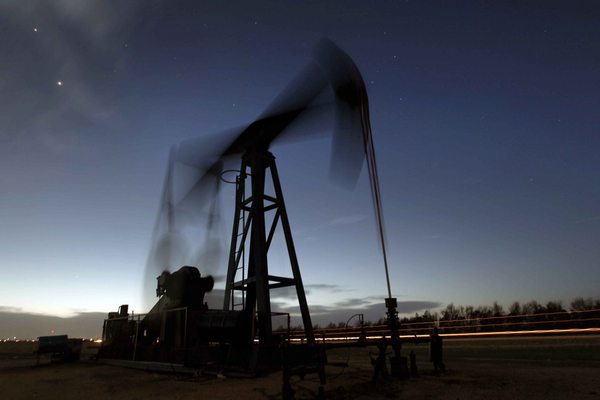
Charlie Riedel/AP
In Paris eight years ago, world leaders agreed to limit global warming to “well below” 2 degrees Celsius. Six years later, in Glasgow, Scotland, they pledged to phase out coal. And on Wednesday, negotiators patted themselves on the back for the first-ever deal to begin “transitioning away” from fossil fuels.
If the past is prologue, it won’t prompt a significant shift in energy markets anytime soon.
The deal — brokered at the U.N. climate summit, known as COP28 — comes as global emissions from fossil fuels continue to climb in 2023. Global coal consumption is on pace to break records. Oil and gas production is booming in the United States. And strong demand for gas in Asia and the Middle East is offsetting waning consumption in Europe.
The dynamic highlights one of the main challenges facing global climate efforts: It takes time for the aspirations espoused at climate talks to produce real-world impact.
But time is now the world’s most precious commodity. The planet has seven years at current emission levels before global warming breaches 1.5 C, the most ambitious target in the Paris Agreement, according to the Global Carbon Project.
“The phase-out from fossil fuel use must be swift if we are to avoid the most dangerous impacts of climate change,” said Jonathan Overpeck, a climate scientist at the University of Michigan.
Yet there is little evidence to suggest that a fossil fuel phase-out is on the horizon.
“There are desires that get pronounced at COP, and then there are practical realities of the world that will drive transition,” said Bobby Tudor, the founder and former CEO of Tudor, Pickering, Holt & Co., an investment bank specializing in energy. “Yes, there is a desire by consumers to transition to cleaner forms of energy. But it is only going to happen if those cleaner forms of energy come at the same price or less and at the same level of reliability or more.”
Tudor called the impact of global climate deals on energy markets “de minimis,” saying technology and cost are far greater drivers in the world’s energy mix. He noted that former President Barack Obama oversaw a rapid expansion of U.S. oil production, even as he pushed for deep emission cuts. By contrast, former President Donald Trump championed the revival of coal, only to see the industry’s fortunes plummet in the U.S.
“That is not meant to say policy has no impact because policy can and does have impact. It just tends to be not as powerful as markets,” said Tudor, who now leads Artemis Energy Partners, an investment firm specializing in early stage energy transition projects. “My bias is that it is going to be a very, very long, slow transition.”
Read the full article here